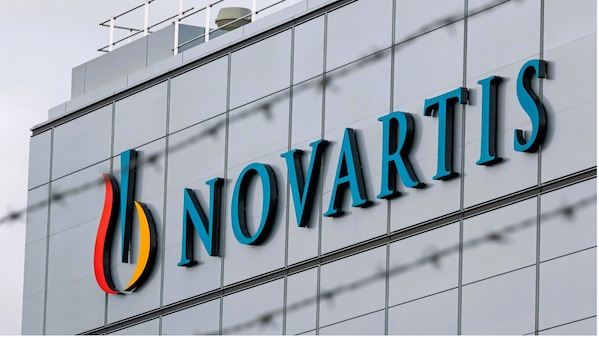Novartis accused of commercial bribery
January 7, 2025
Source: drugdu
 312
312
 New York (Reuters) - The U.S. Federal Court of Appeals for the Second Circuit has reinstated a lawsuit against Novartis. The lawsuit was filed by Steven Camburn, a former Novartis sales representative, alleging that Novartis illegally paid kickbacks to doctors to induce them to promote its multiple sclerosis drug Gilenya.
New York (Reuters) - The U.S. Federal Court of Appeals for the Second Circuit has reinstated a lawsuit against Novartis. The lawsuit was filed by Steven Camburn, a former Novartis sales representative, alleging that Novartis illegally paid kickbacks to doctors to induce them to promote its multiple sclerosis drug Gilenya.
Camburn said Novartis paid doctors thousands of dollars and set up business banquets in high-end restaurants to let them speak at events that were nominally academic conferences but were actually social activities to promote Gilenya.
▍Reported many times
In 2013, the whistleblower sued Novartis under the U.S. False Claims Act, claiming that it paid $3,500 to doctor speakers at academic events to promote the sales of Gilenya. However, the lawsuit was dismissed, and the whistleblower filed lawsuits in other courts many times afterwards. But they all failed due to lack of sufficient specific evidence.
But this time, the pharmacist's complaint has new evidence.
The plaintiff pointed out that in order to promote fingolimod, Novartis not only launched a fake patient project and entertained doctors one-on-one, but also taught doctors how to use the patients' first treatment observation to defraud insurance by overcharging. He believes that Novartis has facilitated pharmacies and doctors to submit false social security reimbursement applications to the government.
The whistleblower pointed out that after receiving kickbacks, doctors and pharmacies prescribe drugs and apply for reimbursement, which is suspected of social security fraud, especially government health insurance including Medicare Part D, Medicaid, and TRICARE. This lawsuit request has been rejected many times, and the district judge at the time rejected it because it lacked more specific details. The whistleblower and his lawyer then re-applied to the Second Circuit Court of Appeals.
The judge believed that the judgment of the local court was biased, and the defendant had fully explained certain factual details, such as the academic conference activities organized by Novartis and the selection of guest speakers, which can be inferred that Novartis has induced doctors and patients to defraud insurance.
According to the latest ruling, the U.S. Court of Appeals stated that the plaintiff has fully argued that Novartis violated the U.S. Anti-Kickback Statute and can try to prove that Novartis violated the U.S. False Claims Act by holding fake academic events to promote the sales of fingolimod.
▍Sales Dilemma
Fingolimod is the world's first oral drug for the treatment of multiple sclerosis. It was approved by the FDA for marketing in the United States in 2010. In 2018, global sales reached US$3.341 billion. It was approved for marketing by the China Food and Drug Administration in July 2019.
After fingolimod was launched, sales have increased year by year. After 2016, although sales have declined due to competition from peers such as Sanofi, Roche, and Bayer Pharmaceuticals and patent expiration, it is still one of Novartis' best-selling products in the field of neuroscience. In 2021, fingolimod brought Novartis nearly US$2.8 billion in revenue, and US$3.22 billion in 2019.
However, due to competition from generic drugs, sales of fingolimod have been declining. Sales fell to $925 million in 2023 and totaled $443 million in the first nine months of 2024.
But Novartis has a new product pillar for multiple sclerosis. In 2023, sales of ofatumumab reached $2.171 billion, a year-on-year increase of 99%. However, Novartis still has to clean up the previous mess.
https://mp.weixin.qq.com/
By editorRead more on
- Gan & Lee Pharmaceuticals’ new PROTAC drug GLR2037 tablets have been approved for clinical trials to enter the field of prostate cancer treatment March 3, 2026
- AideaPharmaceuticals plans to raise no more than 1.277 billion yuan through a private placement to focus on the global clinical development of innovative HIV drugs March 3, 2026
- Giant Exits! Its Star Business Acquired March 3, 2026
- Focusing on cardiovascular and cerebrovascular diseases! OpenMediLead Medical Intelligence Dual Engines Launch Internal Testing, Connecting Drug Development and Clinical Diagnosis in a Closed Loop March 3, 2026
- Innovent Biologics Announces Approval of New Indication for BTK Inhibitor “Pitubrutinib” in China March 3, 2026
your submission has already been received.
OK
Subscribe
Please enter a valid Email address!
Submit
The most relevant industry news & insight will be sent to you every two weeks.



